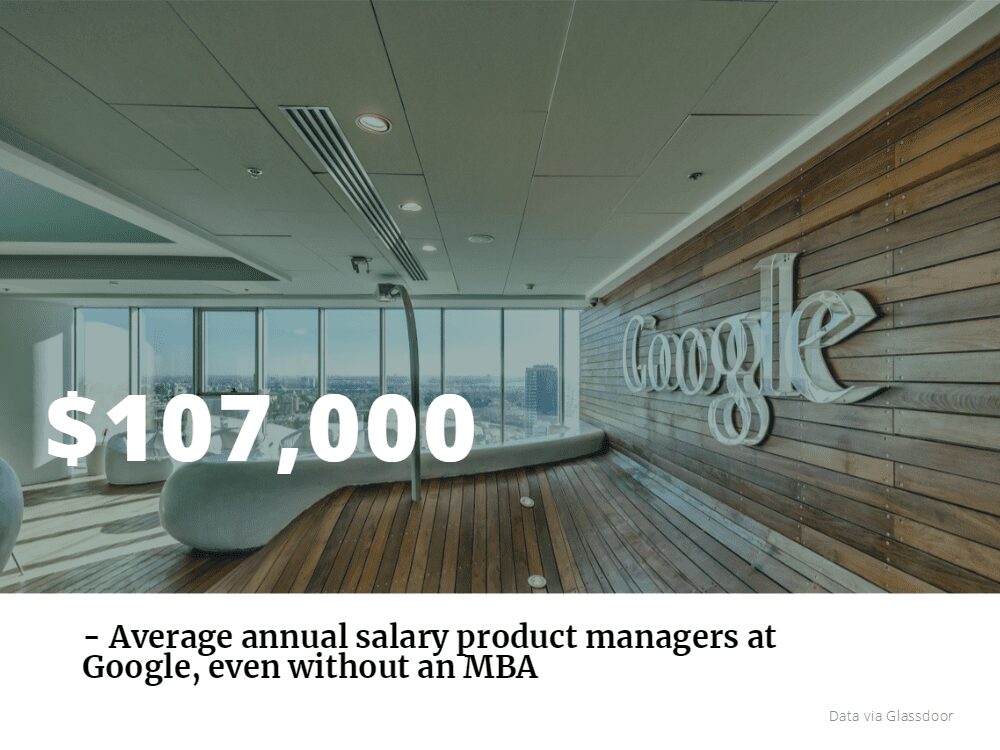New MBA Jobs in the Energy Sector

It’s hard to imagine that just 100 years ago, just 35 percent of American households had electricity and Model T cars were en vogue. Fast forward to present day, and energy companies not only provide the infrastructure that heats our homes and drives our cars, they also help set up future technologies and breakthroughs that will bring newer, cleaner energy innovations for years to come. Check out these exciting new MBA jobs at leading energy companies to see how you can help make an impact in an exciting, and evolving industry. Continue reading…
School v. School: Arizona State v. USC

California or Arizona? Los Angeles or Phoenix? Arizona State University’s W.P. Carey School of Business of USC Marshall Business School?
It’s not so easy deciding where you should go to school for your MBA degree. There are many elements to consider including the location, cost of attendance, school rankings, post-graduation opportunities, and type of programs available. To help simplify the process for you, our School vs. School series takes a look at two similar top b-schools to compare and contrast what they offer.
Today, we’re taking a look at ASU vs. USC to see which is best for you. Continue reading…
New Jobs at the Biggest Players in Telecom

Telecommunications firms help keep people connected. Did you know that 781 billion text messages are sent every month in the United States? That means that, on average, Americans send and receive about 94 text messages per day. More importantly, did you know that an estimated 240 million calls are made to 9-1-1 in the U.S. each year? In many areas, 80 percent of these calls are from mobile devices. These numbers put into perspective the importance of telecommunications, and the need for continued innovation in those fields. Continue reading…
Top MBA Recruiters: Microsoft vs. Google

Microsoft and Google are two brands that are practically synonymous in tech. Google provides search and email services to billions, while Microsoft’s Office is a ubiquitous presence across college campuses and cubicles around the world.
Both companies have long been top destinations in tech but their reputation is rapidly growing within the business world as well. MBAs looking to enter tech may find their dream job at one of these companies.
Microsoft vs. Google: MBA Salaries
Both Microsoft and Google, unsurprisingly, compensate their employees handsomely. Given the numerous opportunities MBA graduates might have due to their past experience and interests, we will will examine only one position: Project Manager, a common entry-level position for many new MBAs.
According to Glassdoor, project managers at Microsoft earn an average annual salary of $96,520, which can rise sharply for MBAs. Average additional play, include cash bonuses, stock shares, and more, can increase the annual sum by a measure of $20,000.
At Google, project managers typically earn a bit more per year, with a current estimate around $107,000. With bonus and stock incentives, that can increase that figure by a measure of $40,000 or more per year.

Microsoft vs. Google: Company Culture
Google has one of the most infamous company cultures in the tech world. Aside from the well-known benefits of working at a Google campus, Google operates according to a philosophy; Ten things we know to be true. This document drives all of the work that the company does. It also influences who they choose to employ at their company.
In terms of office life, Google is extremely relaxed. Employees work hard, but they are given the space to do so in their own idiosyncratic ways. Employees are encouraged to be creative by working across departments to develop new products and come up with solutions.
In the past, Microsoft was a place known for its ruthless culture. Spearheaded by founder Bill Gates, Microsoft demanded a lot from its employees and cultivated a hostile workplace. Under the leadership of Satya Nadella, however, Microsoft encourages a growth mindset. This new attitude allows employees to learn from one another, as well as Microsoft customers.
Microsoft’s new approach to work has transformed the workplace as well. Rather than working employees like dogs, Microsoft now encourages its employees to maintain a work-life balance. In addition, the office has been opened, providing more spaces for collaboration and communication.

Microsoft has disconnected from its reputation as a rough employer, creating an inviting, fun culture of inclusivity and modernity / Photo via Scott Eklund/Red Box Pictures
Microsoft vs. Google: Employee Numbers
Operating at the forefront of innovation, Google and Microsoft are two of the largest employers in the technology sector. Google employs over 98,000 employees, while Microsoft has almost 135,000 employees.
Many of Google’s employees are centered at the Googleplex in Mountain View, California. The remainder are spread across more than 70 offices in 50 countries. Microsoft has 50,294 employees in its home region around the Puget Sound. The remaining employees are located in 646 office sites spread across 109 countries.
Microsoft vs. Google: Employee Satisfaction
Google and Microsoft offer generous benefits and make themselves accessible to address any employees concerns that may arise.
Both companies are ranked highly on lists of the best places to work. Google is eighth on Glassdoor’s “Best Places to Work” list for 2019, a list voted on by the employees at the companies themselves. Microsoft is ranked 34th on the Glassdoor list.
The business world has recognized the efforts of both companies to push innovation and creativity. Comparably.com surveyed employees and wrote a list of the companies with the brightest outlook—Google ranked 10th on this list and Microsoft ranked 12th.
New MBA Jobs at 3 Major Mass Media Companies

Last month, Disney finalized a $71.3 billion deal where the biggest mouse in media acquired significant portions of Fox, including 20th Century Fox film and TV studios, entertainment cable networks, and other international assets. This is big news: Not only does this allow for the X-Men to cross over into Marvel’s The Avengers, it also means that Disney now dominates in its market share of the U.S. box office, at nearly 28 percent. Continue reading…
The 5 Top Paying Tech Companies for MBAs

Everyone knows business school costs a pretty penny, which makes ROI one of the major deciding factors when pursuing both an MBA program and post-graduation employment.
At one point, MBAs were practically personas non grata in Silicon Valley. Today, tech is on par with traditionally lucrative fields of banking and finance in terms of MBA employment—likely due to the whopping salaries associated with the industry. IT management positions, for instance, boast a reported average salary of $113,000 USD.
5 Top Paying Tech Companies for MBAs

After being outpaced by Apple in the early part of this decade, Microsoft has made an impressive comeback in recent years. In addition to software development, the company has made significant strides in cloud computing, AI, cybersecurity, and gaming as well. Microsoft employs MBAs in a wide variety of positions with mobility across the company and no set career path. The company’s reported average starting salary is $116,473 and total compensation is even higher. Microsoft also boasts a better employer satisfaction rating than most of its high-paying tech peers.

Google has leveraged its access to user data in order to become a dominant force in online advertising technologies and cloud computing. The online search titan is known for its frighteningly competitive application pool and in-depth hiring process. For the MBAs that make the cut, the average starting salary of $121,979. Positions include sales and marketing, product management, finance and operations.

IBM recently made headlines when it acquired open-source software firm Red Hat. Whether or not this historical corporate buyout will help IBM get a leg up on the cloud computing market share, the company nonetheless offers MBAs an average starting salary of $124,714. With leadership development tracks for MBAs in consulting, product management, finance, and strategy, they can also opt to pursue the General Manager Leadership Development Program, designed for “top MBA graduates from leading global universities hired into IBM on an accelerated path to General Management leadership.”

Despite the Cambridge Analytica scandal’s huge blow to consumer and investor confidence, Facebook’s market share rebounded in just a few months after the news broke. The social media torchbearer continues to steadily grow its user audience and tally of digital tech company acquisitions. The common path to employment at Facebook is through its internship program. With an average starting salary of $126,292, potential MBA hires will need to be ready to develop relevant, hands-on leadership skills in order to take on the increasing AI and AR/VR focus of this company.

As the commanding leader of online retail sales in many parts of the world, not to mention major competitor in cloud computing, media streaming services, and mobile devices, Amazon is one of the top employers of MBAs across all sectors. Amazon offers multiple pathways to management, from mainstream internship opportunities to dedicated programs that groom MBAs to take on specialized leadership positions within the company. With a reported average starting salary of $123,970, Amazon shows no signs of slowing down when it comes to recruitment. The company’s income tripled from 2016 to 2017 and it consistently reinvests most of its money, which has spurred rapid, continual growth.
